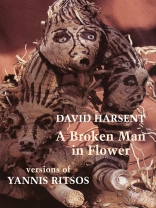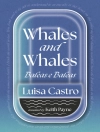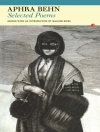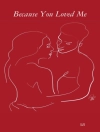A Broken Man in Flower presents new versions of work by one of the most significant Greek poets of the last century, translated by one of the UK’s most renowned contemporary poets.
The life of Yannis Ritsos was, to say the least, troubled. From an early age, he was dogged by the tuberculosis that killed his mother and brother. His father and sister suffered breakdowns and spent time in institutions. His poem Epitaphios (1936), a lament for a young man shot dead by the police during a tobacco workers’ strike, was publicly burned by the Metaxas regime and his books banned. Throughout his life he wa repeatedly persecuted, arrested and placed under house arrest by the oppressive Greek authorities.
The violence and tyranny of dictatorship is often fractured by the surreal. In the poems collected here, written by Ritsos while in prison and under house arrest, that fracture in perception is a wound. A Broken Man in Flower has an introduction by John Kittmer and includes the text of an illuminating and vivid letter sent by Ritsos to his publisher in 1969 while under house arrest on Samos describing his life – and the lives of Greeks – under the repressive rule of the Colonels.
Harsent’s versions of Ritsos’ poems express the revolutionary and experimental nature of his work while also remaining accurate translations from the Greek.
Giới thiệu về tác giả
David Harsent has published thirteen volumes of poetry.
Legion won the Forward Prize.
Night was triple shortlisted in the UK and won the Griffin International Poetry Prize.
Fire Songs won the T.S. Eliot Prize. A new collection,
Loss, appeared in January 2020.
A Broken Man in Flower: versions of Yannis Ritsos is published by Bloodaxe in 2023. Harsent has collaborated with several composers, though most often with Harrison Birtwistle. He is Professor Emeritus at the University of Roehampton.
Yannis Ritsos (1909-90) is generally considered to be – along with Cavafy, Seferis and Elytis – one of the most significant Greek poets of the last century. From an early age, he was dogged by the tuberculosis that killed his mother and brother. His father and sister suffered breakdowns and spent time in institutions. During his lifetime, his poems were publicly burned by the Metaxas regime, and his books banned. Ritsos himself was repeatedly arrested and sent to prison camps, before being confined to house arrest on the island of Samos.












